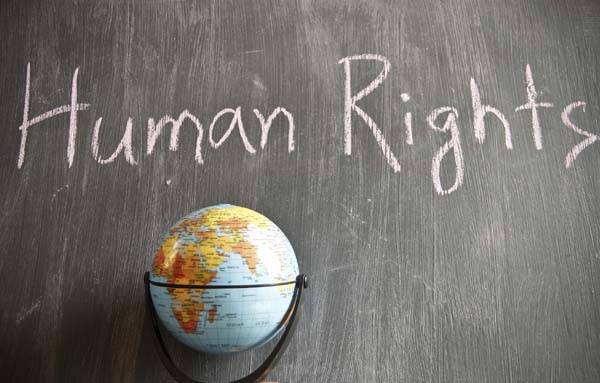Pakistan among countries with highest number of legislation to protect human rights
Shares

ISLAMABAD: Pakistan is one of the country which passed highest number of legislation to protect Fundamental Human Rights of people including 13 related to women protection, 7 child
rights, 10 minorities, 65 Civil, Political, Environment Rights legislation from the National Assembly.
Besides that in Punjab Assembly, 19 laws were passed on Civil, Political and Economic Rights, seven child rights, four
minorities while the Sindh assembly has done legislation on 15 Civil, Political and Economic Rights, two on women rights, five on child rights and two on minorities rights, an official of Ministry
of Human Rights told APP.
In Khaber Pakhtunkhwa, 32 laws on Civil, Political and Economic Rights, two on women rights, five on child and two on minorities rights were promulgated, and the Balochistan assembly
passed 19 Civil, Political and Economic Rights legislation, one women rights and two on child rights.
Major bills to protect rights of masses included Protection against Harassment of Women at Workplace (Amendment) Bill, 2014, Hindu Marriage Bill, 2015,Anti-Rape Laws (Criminal Laws Amendment)
Bill, 2013 and Anti Honour Killing Laws (Criminal Laws Amendment)
Bill, 2014 by the National Assembly.
However, the endeavour of provincial assemblies can be revealed through Punjab Marriage Restraint (Amendment) Act, 2015 Restraint (Amendment) Act, 2015, under which wedding of a boy
below 18 year and girl below l6 years be considered an offence punishable with imprisonment which may extend to 6 months and fine of 50,000 rupees.
Punjab Prohibition of Child Labour at Brick Kilns Ordinance,
2016 enacted considering it necessary to prohibit employment of
below 18 years children at hazardous work places.
Sindh Child Marriage Restraint Act, 2013 declares marriage
below the age of 18 years punishable by law.
Khyber Pakhtunkhwa Elimination of Custom of Ghag Act, 2013,
addresses the customary practice under the name of Ghag whereby a
male person forcefully demands or claims the hand of a women
without her own or her parents’ or wail’s consent.
It has been made an offence punishable with imprisonment of
either description for a term which may extend to seven years but
shall not be less than three years and shall also be liable to fine up to five hundred thousand rupees or both.
The Khyber Pakhtunkhwa Prohibition of Employment of Children
Act, 2015, has been enacted to prohibit employment of children in
any establishment and to regulate the hours and other conditions
of workers in commercial establishments in the province.
Besides that it is also signatory of seven core United Nations Conventions to undertake appropriate measures to uphold the universal human rights standards in the country.
rights, 10 minorities, 65 Civil, Political, Environment Rights legislation from the National Assembly.
Besides that in Punjab Assembly, 19 laws were passed on Civil, Political and Economic Rights, seven child rights, four
minorities while the Sindh assembly has done legislation on 15 Civil, Political and Economic Rights, two on women rights, five on child rights and two on minorities rights, an official of Ministry
of Human Rights told APP.
In Khaber Pakhtunkhwa, 32 laws on Civil, Political and Economic Rights, two on women rights, five on child and two on minorities rights were promulgated, and the Balochistan assembly
passed 19 Civil, Political and Economic Rights legislation, one women rights and two on child rights.
Major bills to protect rights of masses included Protection against Harassment of Women at Workplace (Amendment) Bill, 2014, Hindu Marriage Bill, 2015,Anti-Rape Laws (Criminal Laws Amendment)
Bill, 2013 and Anti Honour Killing Laws (Criminal Laws Amendment)
Bill, 2014 by the National Assembly.
However, the endeavour of provincial assemblies can be revealed through Punjab Marriage Restraint (Amendment) Act, 2015 Restraint (Amendment) Act, 2015, under which wedding of a boy
below 18 year and girl below l6 years be considered an offence punishable with imprisonment which may extend to 6 months and fine of 50,000 rupees.
Punjab Prohibition of Child Labour at Brick Kilns Ordinance,
2016 enacted considering it necessary to prohibit employment of
below 18 years children at hazardous work places.
Sindh Child Marriage Restraint Act, 2013 declares marriage
below the age of 18 years punishable by law.
Khyber Pakhtunkhwa Elimination of Custom of Ghag Act, 2013,
addresses the customary practice under the name of Ghag whereby a
male person forcefully demands or claims the hand of a women
without her own or her parents’ or wail’s consent.
It has been made an offence punishable with imprisonment of
either description for a term which may extend to seven years but
shall not be less than three years and shall also be liable to fine up to five hundred thousand rupees or both.
The Khyber Pakhtunkhwa Prohibition of Employment of Children
Act, 2015, has been enacted to prohibit employment of children in
any establishment and to regulate the hours and other conditions
of workers in commercial establishments in the province.
Besides that it is also signatory of seven core United Nations Conventions to undertake appropriate measures to uphold the universal human rights standards in the country.
